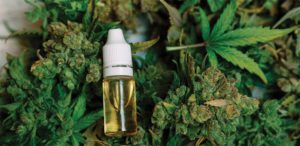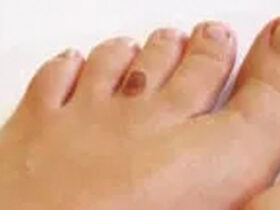 Although it’s common for individuals to associate PTSD with military and wartime stress disorders, the National Institute of Mental Health describes PTSD (Post Traumatic Stress Disorder) as the following:
Although it’s common for individuals to associate PTSD with military and wartime stress disorders, the National Institute of Mental Health describes PTSD (Post Traumatic Stress Disorder) as the following:
“PTSD is a disorder that develops in some people who have experienced a shocking, scary, or dangerous event. It is natural to feel afraid during and after a traumatic situation. Fear triggers many split-second changes in the body to help defend against danger or to avoid it. This “fight-or-flight” response is a typical reaction meant to protect a person from harm. Nearly everyone will experience a range of reactions after trauma, yet most people recover from initial symptoms naturally. Those who continue to experience problems may be diagnosed with PTSD. People who have PTSD may feel stressed or frightened even when they are not in danger.”
PTSD causes extreme side effects. Many individuals have severe nightmares, flashbacks, hyper startle responses, and loss of interest, severe anxiety and are often suicidal. Numerous military veterans with PTSD have issues with employment, violence, and relationships. These veterans often have severe flashbacks. Many people who suffer from PTSD have difficulty sleeping, feel detached and estranged, which can lead to permanent disability.
The standard treatment options for PTSD are antidepressant medications. Some of the most widely known drugs prescribed are Prozac, Lexapro, Zoloft, and Oxycontin. The classes of these medications play a role in how the neurotransmitters affect the mood by improving your state-of-mind and creating a more peaceful, cheerful spirit, by extinguishing the brain’s transmitters. The problem is these drugs are highly addictive, have adverse side effects, and also in many cases, show signs of cognitive decline in long-term use.
The other issue with standard medications is that they more often than not, become ineffective and are unable to reverse feelings of severe depression. This is called treatment-resistant depression.
standard PTSD medication’s adverse reactions like nausea, anxiety, weight gain, loss of sexual desire, severe fatigue, inability to focus, sleep disturbances, dry mouth, vision issues, constipation, forgetfulness, and ineffectively treating PTSD symptoms.
How does Medical Marijuana Help with PTSD?
The stark reality is that “standard of care” treatment for PTSD often falls short. When these therapies disappoint, patients need alternatives for their brain and bodily health, cognition and long-term ability to function and experience calm. The problem with standard medications is their often just not enough due to the brain’s complexities, and anti-anxiety meds are addictive and very often fail to keep working for many patients.
Our brain and nerve cells have cannabinoid receptors, so our bodies naturally react to cannabis (medical marijuana). The structure of cannabis interacts directly with our cells. Our natural endocannabinoid system works synergistically with medical marijuana, creating a multitude of beneficial reactions in the body. The endocannabinoid cells have tiny receptors that take in chemicals and produce responses. This natural system in our bodies regulates things like mood, sleeping, immunity, pleasure, memory and much more.
Medical marijuana is made up of THC and CBD. The CBD is known to bind to receptors and is thought to regenerate cells and brain function, while THC helps to relax and alleviate the physical symptoms of apprehension. There is a collaborative effect between these chemicals when taken together. This synergistic effect means the ratio of THC and CBD can be manipulated for the patient’s benefit.
Want To Get Confidential Information On How Medical Cannabis Can Help You?
The Healing Center Medical Clinic (THCMC) provides professional and private medical cannabis evaluations
The Healing Center Medical Clinic
5240 Bank Street, Suite 1 & 2
Fort Myers FL 33907
239-887-3887
THCfortmyers.com









